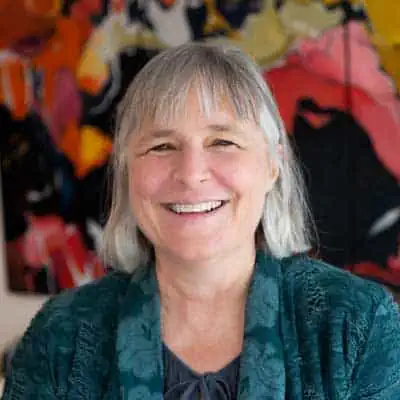sarah peyton presents
The 2025 Neuroscience & Resonance Webinar Series
How can we restore ourselves and increase our resilience through self-knowledge and an understanding of the human brain? Join Sarah Peyton each month for a 90-minute deep-dive into the latest neuroscience research on various healing topics, and how we might apply it to resonant healing.

January – December 2025
Every 4th Tuesday
7-8:30 PM Pacific Time
January 2025 – December 2025
Every 4th Tuesday, 7-8:30 PM Pacific Time
Over the course of 2025, Sarah Peyton will spend one evening each month diving deeply into the most cutting-edge relational neuroscience about living and trusting in this world.
Each monthly 90-minute presentation offers a survey of the latest neuroscience research and Sarah’s unique metabolization of that information through a resonant healing lens. This year’s multi-dimensional exploration of self-trust and self-betrayal supports us to see ourselves and our brains with compassion and understanding.
Sarah’s guiding questions for this year’s research:
“How can we restore ourselves in the wake of the emotional impacts that the last years and months have had on our ability to trust ourselves and each other?
How can we increase our resilience through self-knowledge and an understanding of the human brain?”
Join us for a year of immersive study and supportive insight into the brain and body, through a Resonant Healing lens!
Please Note: These are primarily learning and neuroscience content webinars, including a small number of actionable insights and healing process work. If you are seeking individualized healing and practice opportunities, please see Sarah’s upcoming courses here
Monthly Topics
Your Resonant Self’s Relationship to Habits and Resolutions
Did you ever wonder whether resolutions were actually helpful? How do our resolutions turn into habits and become a part of us?
In this 90-minute webinar with Sarah Peyton we will look at research and experience, and look at the possibilities of integrating resonant language into the way we form intentions and resolutions, and how they might help us create new, healthy habits.
Healing from the Complex Grief of Being Ghosted and Estrangement
Have you ever had a friend block you on social media, stop taking your calls, and stop all communication without any explanation? What about a sibling or child who refuses all connection? Healing from this type of loss is very complex, as the sudden disappearance makes time stop.
Join Sarah for this 90-minute webinar to explore the neuroscience of the impact of sudden, unexplained disappearance, and to look at ways to support healing.
Lying and Telling the Truth
Can the brain tell the difference between a lie and the truth? What about our immune system – does telling the truth help our immune system function? Why does complex truth help us more than other expressions? Can we be too honest? What are the gifts of lying? Can we tell too many lies?
In this 90-minute webinar with Sarah Peyton, we will learn the relational neuroscience of honesty and lies, and discover how to guide our brains to their best truth-telling.
Shyness and Rejection Sensitivity Dysphoria (RSD)
Are you or someone you love shy? Is there a difference between shyness and social anxiety? What about Rejection Sensitivity Dysphoria, a rarely named symptom of ADHD?
Join Sarah for a 90-minute sweet celebration of the relational neuroscience of shyness, and bring respect and choice to our experiences of our own personality traits.
Comparing vs. Radical Acceptance
Why do we continually compare things, especially ourselves with others? Why are comparisons so painful? What happens in the brain when we occupy ourselves with this largely useless pursuit? Do we receive a brain reward when we make comparisons?
Join Sarah Peyton for a 90-minute exploration of the research into comparisons, how they are our best attempt to regulate ourselves and tell complex truths, and discover the integrative value of mourning in support of radical acceptance.
Corporal Punishment and Political Conservatism: Is There a Link?
The results of corporal punishment in the brains of children are the brain patterns that show up in adult conservatives, especially those who find comfort in authoritarianism. The worse the abuse that a child suffers, the more likely they are to believe in authoritarianism as an adult.
Join Sarah Peyton for a 90-minute exploration of the research into the brain patterns of political affiliation, and links between the impacts of corporal punishment, and other forms of abuse, on adult thinking.
The Joys and Perils of Curiosity
Have you ever noticed how your whole body gets involved when you are curious about something? What is the neuroscience of curiosity, and when is curiosity healthy, and when is it unhealthy? Join Sarah for a 90-min webinar exploring the research into this tantalizing subject, and discover how resonance can make our expressions of curiosity more life-serving.
Willpower and Free Choice
Do we actually have free will? What does the brain science tell us about our possibilities to have choice? And how does the idea that free will is compromised impact our mood and motivation? Join Sarah for a 90-minute webinar about the relational neuroscience of willpower, and learn how to leverage this understanding to make our lives better.
Reactive Attachment: When Trauma Turns Love Inside Out
Reactive Attachment Disorder happens to us and to our brains when we experience early, repeated loss, alarmed aloneness and harm, especially in relationship with our closest people. What are the circumstances in which Reactive Attachment is formed? What does Reactive Attachment look like in children, and what does it look like in adults? How can resonance be of support?
Join Sarah Peyton for 90-minute webinar that will help you understand and differentiate reactive attachment from other effects of early trauma, and learn how resonance can hold parents and bring some ease to children.
Resonance for Dementia and Dementia Caregivers
In a world with an aging population, dementia is expected to triple in the next thirty years, reaching 153 million people. Join Sarah Peyton for a 90-min webinar which explores the brain causes and effects of dementia, what kinds of resonance are sweet for folks living with dementia, and also some resonant support for those who are caring for people living with dementia.
Hope
Do you struggle with hope? Have the events, political and personal, of the last years impacted your ability to have a sense of optimism and possibility for the future? Join Sarah Peyton for a 90-minute webinar exploring the relational neuroscience of hope, its interrelationship with trauma, and the gifts that resonance can give us.
2025 Free December Process Work Webinar
Every year Sarah takes the newest process that she has been exploring and brings it to the public to savor and experience along with her. We never know what special surprise awaits us in this free process work webinar!
Registration will be open in the fall of 2025.
Register for the Full Series
Webinar Bundle: The 2025 Monthly Neuroscience & Resonance Webinar Series
$170.00
- Your tuition payment is non-refundable (but it is transferable).
- The webinars will be recorded for those who want to learn asynchronously for some or all sessions.
- These are primarily learning and neuroscience content webinars, including a small number of actionable insights and healing process work.
About the Instructor
Sarah Peyton, Certified Trainer of Nonviolent Communication and neuroscience educator, integrates brain science and the use of resonant language to heal personal and collective trauma with exquisite gentleness.
Sarah is a sought-after expert who brings neuroscience expertise together with depth work, self-compassion, and the transformative potential of language. She works with audiences internationally to create a compassionate understanding of the effects of relational trauma on the brain, and teaches people how words change and heal us.
Sarah teaches and lectures internationally and is the author of four books on relational neuroscience and self-compassion: Your Resonant Self: Guided Meditations and Exercises to Engage Your Brain’s Capacity for Healing, the companion Your Resonant Self Workbook: From Self-sabotage to Self-care, and Affirmations for Turbulent Times: Resonant Words to Soothe Body and Mind, and The Antiracist Heart: A Self-Compassion and Activism Handbook, co-authored alongside Roxy Manning, PhD.













